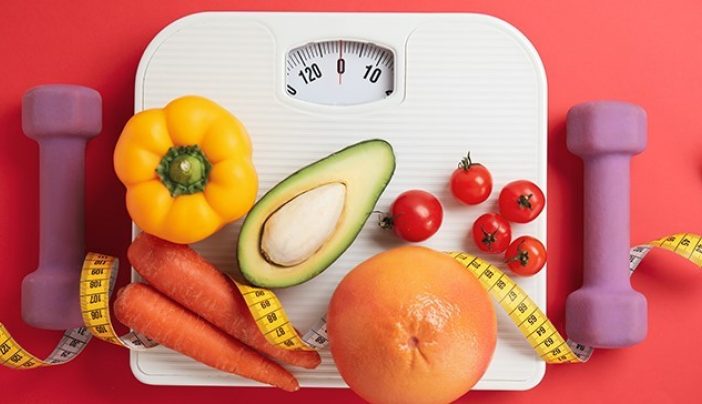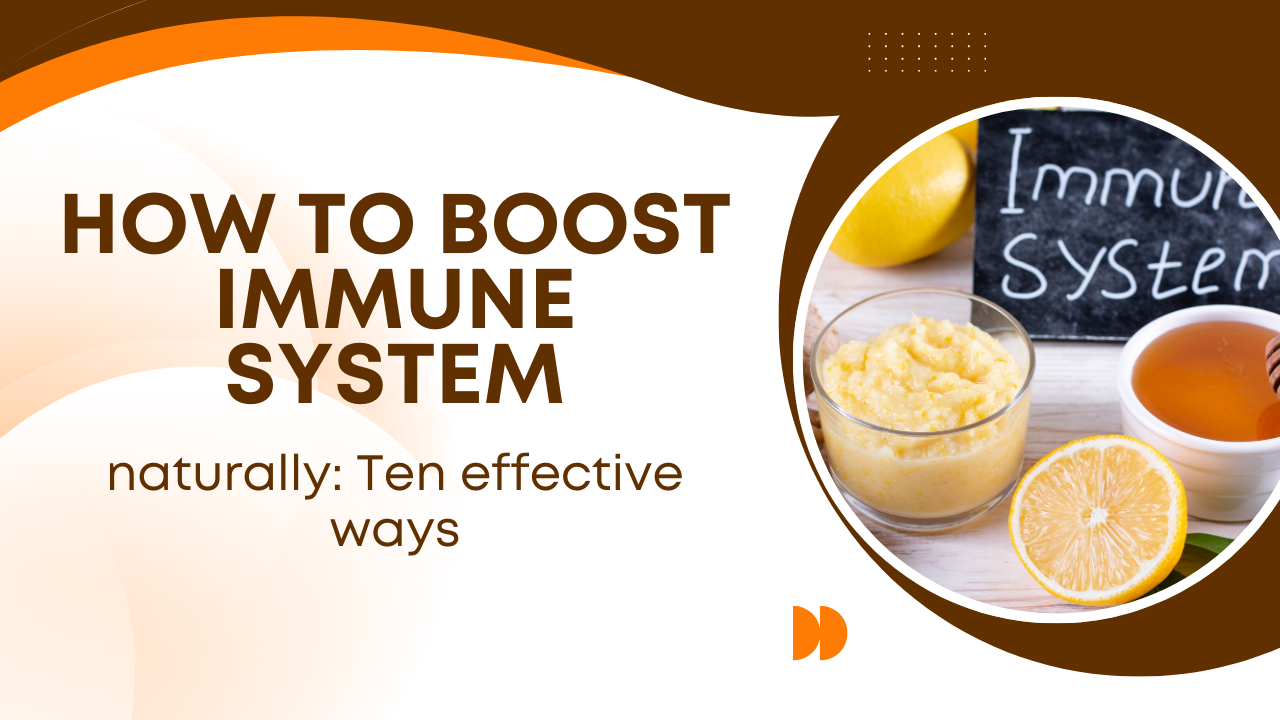In today’s fast-moving and demanding world, taking care of our health has become more essential than ever. Our bodies are not simple machines; they are intricate systems that need proper care, nourishment, and balance to function well. With increasing stress, poor lifestyle choices, and limited time for self-care, it’s easy to overlook the importance of maintaining a healthy body.
A healthy body forms the foundation for a happy, productive, and meaningful life. It gives us the strength to perform daily tasks, enjoy physical activities, and fight off illness and fatigue. More than just physical fitness, true health supports emotional resilience, mental clarity, and long-lasting vitality.
Health is not merely the absence of disease—it’s the presence of energy, strength, and overall well-being. It enables us to seize life’s opportunities, build strong relationships, and pursue our goals with confidence. Taking care of your health isn’t a luxury; it’s a lifelong necessity that empowers every aspect of your life.

Understanding What a Healthy Body Means
A healthy body is more than just looking fit or having a certain weight—it’s about how well your body functions and how good you feel in your everyday life. True health includes physical strength, mental clarity, emotional balance, and the energy to take on daily challenges.
Physically, a healthy body has strong muscles and bones, a well-functioning heart and lungs, balanced hormones, and an immune system that can fight off illness. It also means having a healthy metabolism, good digestion, and the ability to recover quickly from injuries or fatigue.
Mentally and emotionally, a healthy body supports clear thinking, stable moods, and the ability to handle stress effectively. When your body is well-nourished and rested, it’s easier to stay focused, calm, and motivated throughout the day.
Ultimately, a healthy body is one that allows you to live fully—moving with ease, sleeping well, enjoying food without guilt, and feeling confident in your own skin. It’s about balance, not perfection, and consistency over time.
Let’s now look at the top 12 proven and effective tips that can help you build and maintain a healthy body.
Top 12 Tips for a Healthy Body
Eat a Balanced, Nutrient-Dense Diet
Your body is much like a car—it performs at its best when it’s fueled with the right kind of nourishment. Just as a car needs clean, high-quality fuel to run smoothly and avoid breakdowns, your body needs a balanced and nutrient-rich diet to function properly. Supplying your body with the right foods provides the energy, strength, and support it needs to keep your systems running efficiently and to help you feel your best every day. A healthy diet should include:
- Lean proteins (chicken, fish, beans, tofu)
- Healthy fats (avocados, nuts, olive oil)
- Complex carbohydrates (whole grains, vegetables, fruits)
- Plenty of fiber (vegetables, legumes, whole grains)
Avoid ultra-processed foods, added sugars, and excessive salt. A diet rich in antioxidants, vitamins, and minerals boosts your immune system and keeps all body systems running smoothly.
Stay Hydrated

Staying hydrated is one of the simplest yet most powerful ways to support a healthy body. Water plays a critical role in nearly every function of the body—from regulating temperature and aiding digestion to transporting nutrients and flushing out toxins. Even mild dehydration can lead to fatigue, headaches, poor concentration, and reduced physical performance.
To stay properly hydrated, aim to drink at least 8 glasses (about 2 liters) of water each day, more if you’re physically active or live in a hot climate. Include water-rich foods like fruits and vegetables in your diet, and consider herbal teas or infused water for variety. Avoid relying too much on sugary drinks or caffeine, which can actually contribute to dehydration. Making hydration a daily habit supports clearer skin, better digestion, improved energy levels, and overall well-being.
Tip: Drink at least 8 glasses (2 liters) of water a day, more if you’re active or live in a hot climate. Include herbal teas and water-rich foods like cucumbers and watermelon.
Get Regular Physical Activity
Exercise is essential for maintaining a healthy body and should never be overlooked. It plays a vital role in strengthening your muscles, improving heart and lung function, and keeping your metabolism active and efficient.
Regular physical activity also has a powerful impact on mental health. It helps reduce stress, boosts mood through the release of endorphins, and increases energy levels, making daily tasks feel easier and more enjoyable.
The good news is, you don’t need to spend hours in the gym. Just 30 minutes of moderate exercise, five times a week—like brisk walking, cycling, or yoga—can lead to noticeable improvements in your overall health and well-being.
Try:
- Brisk walking
- Yoga or Pilates
- Strength training
- Swimming or cycling
- Dancing or sports
Exercise also releases endorphins, your body’s natural mood enhancers.
Prioritize Sleep and Rest

Sleep is a vital time when your body heals, repairs, and restores itself. During deep sleep, important processes take place—muscle tissue is rebuilt, hormones are balanced, and the immune system is strengthened. It’s also when your brain processes information, stores memories, and resets for the day ahead.
When you don’t get enough quality sleep, your body begins to feel the effects. Lack of rest can lead to weight gain, hormonal imbalances, weakened immunity, increased stress levels, and difficulty concentrating. Over time, chronic sleep deprivation can contribute to serious health issues such as heart disease, diabetes, and depression.
Getting 7 to 9 hours of restful sleep each night is one of the most important steps you can take toward a healthier body and mind.
Aim for 7–9 hours of sleep every night. Maintain a consistent sleep schedule, avoid screens before bedtime, and create a restful sleep environment.
Quality rest improves memory, focus, stress levels, and even skin health.
Manage Stress Effectively
Chronic stress takes a significant toll on your body, affecting nearly every system. It can contribute to heart disease by raising blood pressure and increasing the risk of heart attacks or strokes. Prolonged stress also disrupts the body’s insulin regulation, leading to an increased risk of diabetes. Digestive issues like irritable bowel syndrome (IBS), acid reflux, or stomach ulcers can be triggered or worsened by stress. On top of that, it can cause hormonal imbalances that contribute to weight gain, sleep disturbances, and mood disorders like depression and anxiety.
While stress is an unavoidable part of life, how you manage it is crucial to maintaining your health. Learning effective stress management techniques, such as mindfulness, relaxation exercises, deep breathing, or regular physical activity, can help reduce its impact. By actively managing stress, you can minimize its damaging effects and protect your physical and mental well-being.
Healthy ways to cope include:
- Meditation
- Deep breathing
- Journaling
- Nature walks
- Talking to a friend or therapist
- Listening to music or engaging in hobbies
Learning to handle stress keeps both your mind and body healthier.
Maintain a Healthy Weight

Being either overweight or underweight can contribute to a range of health issues, such as diabetes, heart disease, hormonal imbalances, and constant fatigue. A healthy body weight is different for everyone, but it should support your body’s ability to function efficiently and maintain high energy levels throughout the day.
Instead of fixating on the number on the scale, it’s more important to focus on body composition, including muscle mass and fat percentage. Pay attention to how your body feels—your energy levels, strength, and overall well-being. Prioritize healthy lifestyle habits, such as balanced nutrition, regular exercise, and adequate sleep, to maintain a body weight that helps you feel your best and supports long-term health.
Avoid Harmful Habits
Tobacco, excessive alcohol, drug use, and even high caffeine intake can harm your body over time. These substances negatively impact vital organs such as the liver and heart, impair brain function, and significantly raise the risk of developing chronic health conditions. Regular use of these harmful substances can lead to long-term health issues, including liver disease, heart problems, mental health disorders, and an increased likelihood of certain cancers. Reducing or eliminating these substances from your lifestyle is key to preserving your overall well-being and minimizing potential damage to your body.
Tips: Quit smoking, limit alcohol to moderate levels, and reduce caffeine to a healthy amount. Consider professional help or support groups if necessary.
Regular Health Check-ups
Prevention is always preferable to treatment. Regular check-ups and screenings help identify potential health problems early, allowing for prompt intervention before they develop into more serious conditions. This includes:
- Blood pressure and cholesterol checks
- Blood sugar monitoring
- Cancer screenings
- Dental and eye exams
Even if you feel fine, annual physicals help track your health and make proactive choices.
Cultivate Positive Relationships
Your emotional and social well-being plays a significant role in your physical health. Positive relationships help reduce stress levels, which, in turn, lowers the risk of developing stress-related health issues such as high blood pressure and heart disease. Strong connections with others also boost happiness, enhance mental health, and can even improve your immune system, making it more resilient to illness.

It’s important to surround yourself with people who inspire, support, and uplift you. These kinds of relationships not only make life more enjoyable but also provide emotional strength during challenging times. Be open to forming new, healthy connections, whether through shared interests, work, or community. On the other hand, don’t hesitate to distance yourself from toxic relationships that drain your energy or contribute negatively to your well-being. Prioritizing healthy emotional and social connections is a crucial step toward maintaining a healthy body and mind.
Healthy body = healthy mind = healthy relationships.
Practice Good Hygiene
Basic hygiene practices can help prevent a wide range of infections and illnesses, keeping your body healthier and more resilient. These include:
- Washing hands regularly
- Brushing and flossing daily
- Showering and wearing clean clothes
- Keeping your environment clean
Personal hygiene also improves confidence and mental well-being.
Spend Time Outdoors
Sunlight is a natural source of Vitamin D, which plays a crucial role in maintaining strong bones, supporting immune function, and regulating mood. Adequate exposure to sunlight helps your body produce the necessary amount of Vitamin D, which is vital for overall health and well-being.
Spending time outdoors in natural environments not only boosts your Vitamin D levels but also has numerous mental and emotional benefits. Being in nature reduces stress, calms the mind, and helps you feel more relaxed. It also contributes to better sleep quality and helps improve mental clarity, making it easier to focus and think clearly. Regularly spending time outside can have a positive impact on both your physical health and emotional well-being.
Tip: Get at least 15–30 minutes of natural sunlight a day, preferably in the morning.
Stay Mentally Active and Positive
A healthy body thrives when paired with a healthy mind. Keep your brain sharp and optimistic by:
- Reading
- Learning new skills
- Doing puzzles
- Practicing gratitude
- Affirmations
- Avoiding excessive screen time
Positivity reduces cortisol (the stress hormone) and supports longevity and vitality.
Conclusion
A healthy body isn’t built from one drastic change—it’s the result of small, consistent decisions made every day. Whether it’s opting for water instead of soda, taking the stairs instead of the elevator, or choosing an early bedtime over late-night screen time, these little habits accumulate over time to improve your overall health.
The key is consistency, not perfection. You don’t need to make every choice perfectly, but staying committed to healthier habits day in and day out will pay off. Even small improvements can lead to significant long-term benefits.
Investing in your health is the most valuable gift you can give yourself. The positive impact of making mindful choices today will not only enhance your well-being but will also benefit your future self. Stay consistent, and you’ll be grateful for the healthy body and mind you’re building.
FAQs
- How much exercise do I need to stay healthy ?
You should aim for at least 150 minutes of moderate-intensity exercise per week, which can be broken down into 30 minutes a day, five days a week. This includes activities like walking, swimming, or cycling. It’s also important to include strength training exercises at least two days a week. - What is the best diet for a healthy body ?
A balanced diet that includes a variety of whole foods is key. Focus on lean proteins, healthy fats, whole grains, and plenty of fruits and vegetables. Avoid processed foods, excessive sugar, and high-sodium items. Hydration is also crucial, so drink plenty of water throughout the day. - How much sleep do I need for optimal health ?
Most adults need between 7 to 9 hours of sleep per night. Quality sleep is essential for physical repair, cognitive function, mood regulation, and overall well-being. - Why is stress management important for health ?
Chronic stress can negatively impact your physical health, contributing to conditions like heart disease, diabetes, digestive issues, and mental health problems. Managing stress through relaxation techniques, exercise, and healthy coping strategies can improve both physical and emotional well-being. - What are some easy ways to improve my daily health habits ?
Start with small changes such as drinking more water, adding a daily walk to your routine, getting enough sleep, and practicing mindfulness. Making consistent, manageable changes over time will lead to lasting improvements in your health.


